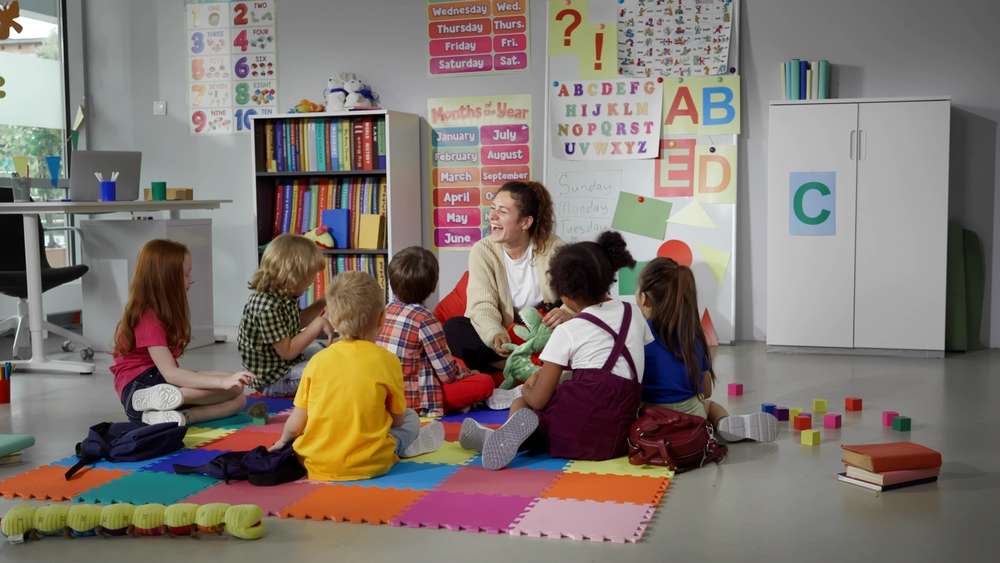Daycare Jobs: Roles, Responsibilities, and Skills Explained
Working in daycare encompasses a range of roles that support children’s daily routines, learning, and well-being. Whether in a nursery, preschool, or after-school setting, people in daycare jobs help create safe, stimulating environments where children can play, learn, and develop. This article outlines common roles, core duties, essential skills, and practical aspects of working in childcare.

What roles exist in nursery and preschool settings?
Daycare and childcare settings include several distinct positions. Early childhood teachers and preschool instructors plan and deliver age-appropriate activities and lessons. Nursery assistants and childcare aides support daily routines, feeding, diapering, and supervision. Some facilities employ lead teachers, classroom assistants, special needs support staff, and administrators who manage scheduling and communication with families. Each role contributes to the daily operation of a school or daycare by balancing educational goals with caregiving responsibilities.
Daily responsibilities: care, safety, and supervision
Daily tasks in daycare revolve around direct care and supervision of children. Staff ensure safety during play and transition times, monitor nap and mealtime routines, and maintain appropriate adult-to-child ratios. Responsibilities include administering basic first aid, observing children for signs of illness, documenting incidents, and communicating with parents or guardians. Maintaining clean, safe spaces and following licensing or regulatory requirements are ongoing parts of the role, ensuring that children’s immediate needs for security and well-being are met.
Teaching, play, and early childhood learning approaches
Teaching in early childhood settings blends structured learning with play-based methods. Teachers design activities that encourage exploration, language development, and pre-literacy skills while using play to reinforce concepts. Circle time, storytelling, sensory stations, and guided group activities promote cognitive and emotional growth. Effective lesson plans integrate play, art, music, and outdoor time to support different learning styles. Emphasis on early childhood education practices helps children transition smoothly into formal schooling and supports lifelong learning foundations.
Skills for supporting children’s development and social skills
Key skills for those in daycare jobs include strong communication, patience, observation, and empathy. Staff help nurture social skills such as sharing, turn-taking, conflict resolution, and emotional regulation. Observation and assessment skills allow caregivers to track developmental milestones and identify areas where additional support may be needed. Collaboration with colleagues and families also matters: sharing insights about a child’s routines, preferences, and progress helps create consistent support for learning and behavior.
Nutrition, health, and safety practices in childcare
Nutrition and health are integral to caregiving roles. Daycare workers often coordinate meal and snack routines that meet facility guidelines and accommodate allergies or dietary restrictions. Safe food-handling practices, monitoring intake for young children, and supporting self-feeding skills are common tasks. Health-related duties also include diapering, toileting support, handwashing routines, and adherence to immunization and illness policies. Safety planning—such as supervising outdoor play, following evacuation procedures, and maintaining safe indoor environments—remains a continuous priority.
Qualifications, training, and local services in your area
Qualifications for daycare roles vary by location and employer; common requirements include certifications in early childhood education, first aid/CPR, and background checks. Professional development topics often cover child development theory, behavior guidance, nutrition, and inclusive practices. Many countries, including Japan, have specific licensing standards and training pathways for working in nurseries and preschools, and local services may offer certificate programs or continuing education. Prospective workers typically review local regulations and seek training that aligns with the type of childcare setting they prefer.
Working in daycare combines practical caregiving with educational responsibilities. Whether working in a nursery, preschool, or community childcare program, these roles support children’s learning, health, and social development while collaborating with families and colleagues to maintain safe, nurturing environments.
Conclusion
Daycare jobs span a range of responsibilities from hands-on care and supervision to lesson planning and health management. Success in these roles depends on a mix of interpersonal skills, relevant training, and an understanding of early childhood development. Those interested in this field should consider local credential requirements and ongoing professional learning to support children’s growth and well-being.






